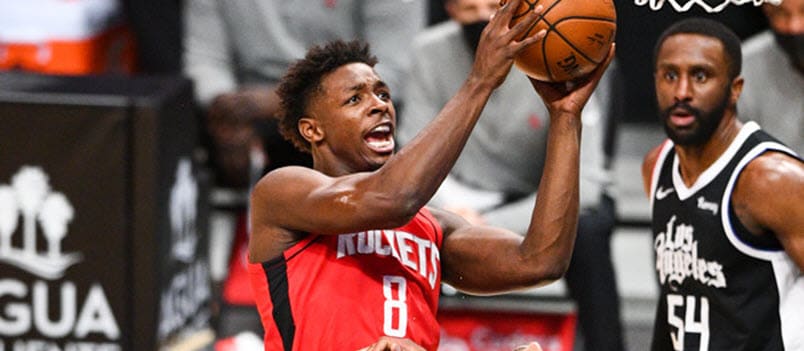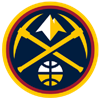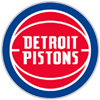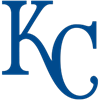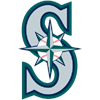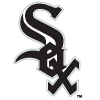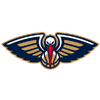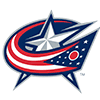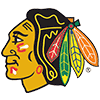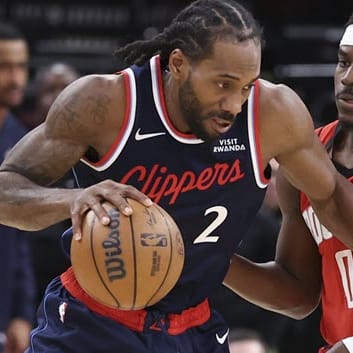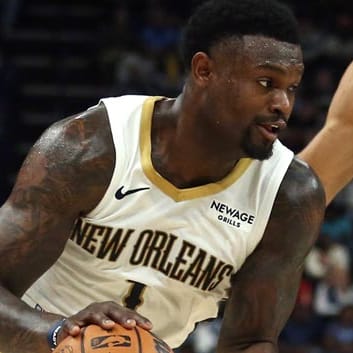Once the majority of the big names are off the board in fantasy drafts, the real work begins. Getting the most bang for your draft capital in the middle and later rounds can often be the key to lasting success throughout a long NBA season, and zeroing in accurately on some undervalued players is the most critical component of coming as close as possible to maximizing each selection.
As the 2021-22 campaign gets set to tip off, here are some potential sleeper candidates to be aware of in drafts:
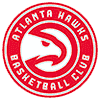 De'Andre Hunter, Hawks
De'Andre Hunter, Hawks
Hunter certainly isn't an unknown quantity to the fantasy basketball world, but he's perhaps somewhat of a forgotten one after he played just 23 games last season. He put his relatively modest time on the floor to good use, however, averaging 15.0 points, 4.8 rebounds and 1.9 assists. Hunter also boosted his shooting percentage from an ugly 41.0 percent as a rookie to an impressive 48.4 percent on an identical 10.8 attempts per contest.
Looking ahead to the new season, Hunter is in the final stages of his recovery from offseason meniscus surgery and should be fully healthy by the Hawks' regular-season opener. That alone should lay the foundation for a potential breakout campaign for the third-year wing, who projects to return to a reliable role as a complementary option in a talented Atlanta starting five.
If Hunter can get off to the same, impressive start as last season -- 17.9 PPG, 5.6 RPG, 2.3 APG, 0.9
Once the majority of the big names are off the board in fantasy drafts, the real work begins. Getting the most bang for your draft capital in the middle and later rounds can often be the key to lasting success throughout a long NBA season, and zeroing in accurately on some undervalued players is the most critical component of coming as close as possible to maximizing each selection.
As the 2021-22 campaign gets set to tip off, here are some potential sleeper candidates to be aware of in drafts:
 De'Andre Hunter, Hawks
De'Andre Hunter, Hawks
Hunter certainly isn't an unknown quantity to the fantasy basketball world, but he's perhaps somewhat of a forgotten one after he played just 23 games last season. He put his relatively modest time on the floor to good use, however, averaging 15.0 points, 4.8 rebounds and 1.9 assists. Hunter also boosted his shooting percentage from an ugly 41.0 percent as a rookie to an impressive 48.4 percent on an identical 10.8 attempts per contest.
Looking ahead to the new season, Hunter is in the final stages of his recovery from offseason meniscus surgery and should be fully healthy by the Hawks' regular-season opener. That alone should lay the foundation for a potential breakout campaign for the third-year wing, who projects to return to a reliable role as a complementary option in a talented Atlanta starting five.
If Hunter can get off to the same, impressive start as last season -- 17.9 PPG, 5.6 RPG, 2.3 APG, 0.9 SPG, 1.8 3PM/G, 51.7% FG through 17 games -- he could be on course for a big-time breakout. As of publication, Hunter holds an average ADP of 138.0.
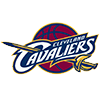 Isaac Okoro, Cavaliers
Isaac Okoro, Cavaliers
On the topic of young wings with plenty of potential, there's Okoro, who gained plenty of experience as a 19-year-old rookie last season while playing in 67 games. Okoro's final numbers weren't anything to write home about – he averaged 9.6 points, 3.1 rebounds and 1.9 assists across 32.4 minutes – but the upside for a good deal more is there on a team that will give its young players plenty of run this season.
Okoro's offensive numbers were capped by a ragged 42.0 percent success rate from the floor, including just 29.0 percent from three-point range. However, Okoro shot 51.0 percent in his one college season at Auburn, so the potential for improvement is there. Darius Garland and Collin Sexton should have outsized roles while helming the Cavs' offensive attack most nights, but Okoro could develop into a reliable secondary option, especially if Kevin Love is phased out and/or eventually traded. Right now, Okoro is more of a deep-league sleeper (ADP: 187.0), but he's a player worth monitoring on the waiver wire early on.
 Reggie Jackson, Clippers
Reggie Jackson, Clippers
Jackson is the most established name on this list, but his fantasy stock has taken a significant hit over the last several years. However, he'll have a chance to step into a larger role this season for a Clippers team that will be without Kawhi Leonard for most, if not all, of the regular season.
The veteran point guard re-upped with the Clippers on a two-year, $22 million deal this offseason, a testament to the value he provided late last season and into the playoffs. Jackson proved up to the task of helping drag the Clippers to the Western Conference Finals, averaging 18.9 points, 3.5 assists, 3.3 rebounds and 3.2 threes across 17 postseason starts.
The 31-year-old is no stranger to handling a larger offensive role, having averaged 15.8 points on 13.6 shot attempts per game during his four full seasons with the Pistons. The Boston College product is coming off his two best seasons from behind the arc – he topped out at a career-best 43.3% last season – and he should also remain a steady contributor in assists. Jackson currently holds an ADP of 130.5.
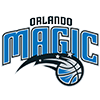 Chuma Okeke, Magic
Chuma Okeke, Magic
Okeke's NBA career is still in its infancy, considering he's been able to suit up for just 45 games since being drafted with the 16th overall pick in 2019. The Auburn product sat out his entire rookie campaign while rehabbing a torn ACL then missed significant time last season with a separate knee injury.
When he was on the floor, the results were encouraging. Okeke averaged 12.8 points, 4.8 rebounds, 2.8 assists and 1.5 steals during his final 18 games, a span in which he shot 44.8 percent, including a serviceable 35.1 percent from three.
There's no reason to think Okeke won't be handed a heavy workload on a rebuilding Magic squad that will likely handle Jonathan Isaac with extreme caution. If his workload hovers around 30 minutes per game, Okeke (ADP: 147.0) could be a fantasy breakout who excels on defense and contributes across multiple categories.
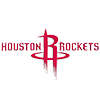 Jae'Sean Tate, Rockets
Jae'Sean Tate, Rockets
Tate was one of the bright spots in a mostly nightmarish 2020-21 season for the Rockets, as the undrafted rookie wing averaged 11.3 points, 5.3 rebounds, 2.5 assists and 1.2 steals while shooting an impressive 50.6 percent from the field. Tate's free-throw and three-point percentages – 69.4 percent and 30.8 percent, respectively – have plenty of room for improvement, and his track record in each category at Ohio State suggests it may be an uphill battle. However, Tate should again be in line for a steady workload, so the door will be open for him to improve upon his surprising rookie season.
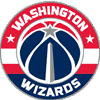 Daniel Gafford, Wizards
Daniel Gafford, Wizards
The big man had a handful of notable performances late last season after coming over from Chicago, and he's now positioned to open the season as the Wizards' starting center. Once Thomas Bryant is back from injury, Gafford could retreat to a bench role, but he's already shown enough to warrant attention in standard leagues.
Much of Gafford's fantasy appeal lies within his shot-blocking after he recorded at least one block in 48 of his 61 appearances last season. Gafford had 12 games with at least three blocks, five games with at least four and two five-block performances. He's also a strong per-minute rebounder whose field goal percentage should hover close to 70 percent. As is the case with most elite shot-blockers, Gafford is not a great free throw shooter, but he knocked down a respectable 66.7 percent (72-of-108 FT) of his attempts last season.
Currently holding an ADP of 111.0, Gafford is a worthy target late in drafts with the hope that he's able to carve out a significant role even after Bryant returns.


